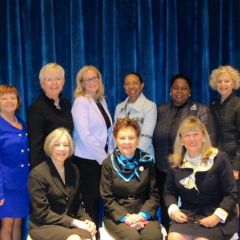ISBA Statehouse Review for the week of March 27, 2014
ISBA Director of Legislative Affairs Jim Covington reviews legislation in Springfield of interest to ISBA members. In this episode he covers Parenting time (House Bill 5425), Parenting time (House Bill 1452), Constitutional amendment and victims’ rights. (HJRCA 1), Workers’ Compensation Act (Senate Bill 3287) and Sale of distressed condominium units (Senate Bill 2664). More information on each bill is available below the video.


 The Illinois Supreme Court announced Monday the appointment of Associate Judge Charles M. Feeney III of the Eleventh Judicial Circuit as a resident circuit judge of Woodford County.
The Illinois Supreme Court announced Monday the appointment of Associate Judge Charles M. Feeney III of the Eleventh Judicial Circuit as a resident circuit judge of Woodford County.